
Find Help
More Items From Ergsy search
-

Can asthma be fatal?
Relevance: 100%
-

Is Chikungunya fatal?
Relevance: 56%
-

What is Asthma?
Relevance: 55%
-
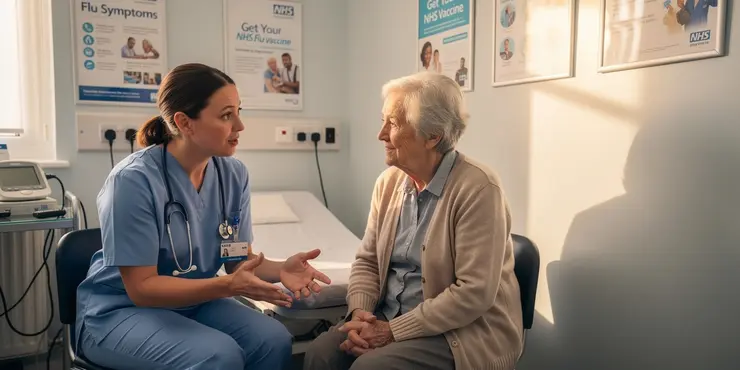
Flu can be fatal
Relevance: 53%
-

Is Huntington's disease fatal?
Relevance: 51%
-

What causes asthma?
Relevance: 45%
-

Are there different types of asthma?
Relevance: 45%
-

Can asthma be cured?
Relevance: 45%
-

How is asthma treated?
Relevance: 45%
-

Is asthma a serious condition?
Relevance: 45%
-

How is asthma diagnosed?
Relevance: 45%
-

What is an asthma action plan?
Relevance: 44%
-

Can diet affect asthma?
Relevance: 43%
-

An Asthma Explainer with Dr Katherine Hickman
Relevance: 43%
-

What triggers asthma attacks?
Relevance: 43%
-

What are the common symptoms of asthma?
Relevance: 43%
-

Are inhalers the only treatment for asthma?
Relevance: 43%
-

Can children outgrow asthma?
Relevance: 43%
-

Can stress cause asthma symptoms?
Relevance: 42%
-
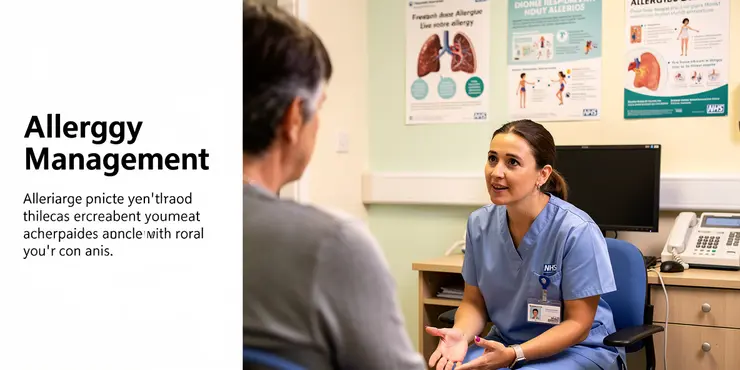
Is there a link between hay fever and asthma?
Relevance: 42%
-

How can asthma attacks be prevented?
Relevance: 41%
-

Can exercise trigger asthma symptoms?
Relevance: 41%
-

Is asthma more common in certain age groups?
Relevance: 41%
-

How does air pollution affect asthma?
Relevance: 40%
-

How often should someone with asthma see a doctor?
Relevance: 39%
-

Can dust mites cause asthma and eczema?
Relevance: 38%
-

Rise in Childhood Asthma Linked to Air Pollution in Urban Areas
Relevance: 37%
-

What are some common pollutants that affect asthma sufferers in urban areas?
Relevance: 37%
-

Are there mobile apps to track air quality and its impact on asthma?
Relevance: 37%
-

Where can I find information on air pollution and its effect on Asthma for my local area?
Relevance: 36%
-

UK Study Links Poor Air Quality to Increased Asthma Cases in Urban Areas
Relevance: 35%
-

Where can I find research studies on air pollution and asthma in my area?
Relevance: 34%
-

How to retrain your breathing | Part 2 | Asthma, long covid or breathlessness
Relevance: 34%
-
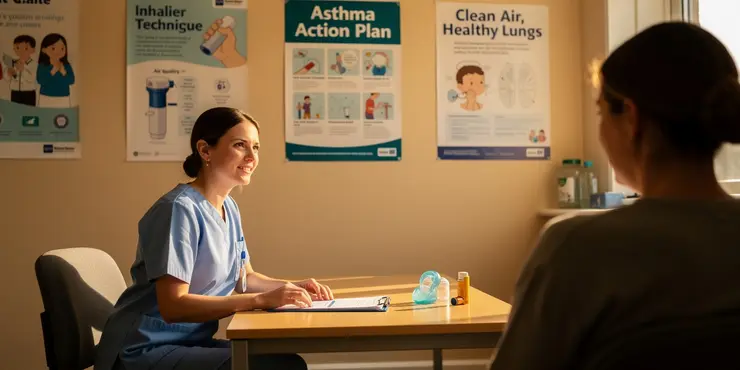
What local organizations provide information on air pollution and asthma?
Relevance: 27%
-

What local organizations provide information on air pollution and asthma?
Relevance: 26%
-
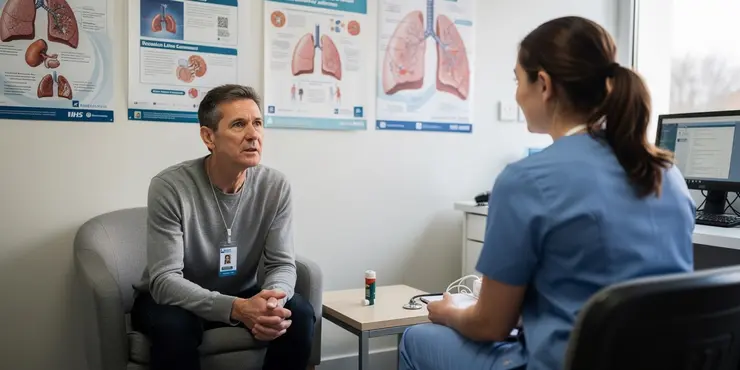
How can I reduce my exposure to air pollution if I have asthma?
Relevance: 26%
-

Where can I find general information about air pollution and asthma?
Relevance: 25%
-
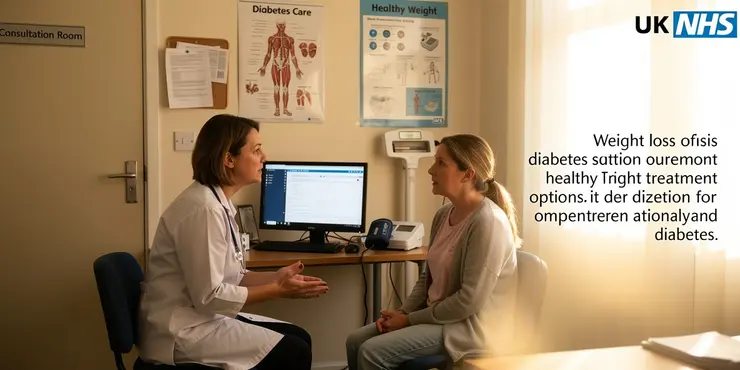
Are weight loss and diabetes jabs linked to potentially fatal side effects?
Relevance: 20%
-

What is the mortality rate of untreated bubonic plague?
Relevance: 19%
-

Understanding and Managing Respiratory Illnesses in Families
Relevance: 16%
Can Asthma Be Fatal?
Asthma is a common respiratory condition that affects millions of people worldwide, and the UK is no exception. Characterized by inflammation and narrowing of the airways, asthma can lead to symptoms such as wheezing, coughing, shortness of breath, and chest tightness. While asthma is often managed effectively with medication and lifestyle adjustments, it's important to understand the potential for asthma to be fatal under certain circumstances.
Understanding Asthma Attacks
One of the most dangerous aspects of asthma is the potential for severe asthma attacks, also known as flare-ups or exacerbations. During an asthma attack, the muscles surrounding the airways constrict, and the lining of the airways becomes swollen and inflamed, making it difficult to breathe. These attacks can vary in severity and duration, and without prompt treatment, they can lead to life-threatening situations.
Risk Factors for Fatal Asthma
Certain factors increase the risk of asthma becoming fatal. Patients with poorly controlled asthma are at a higher risk, especially if they frequently experience severe attacks. Additionally, individuals with a history of previous severe attacks or hospital admissions due to asthma are also at increased risk. Environmental triggers, such as exposure to allergens, pollutants, or smoke, can exacerbate asthma symptoms and lead to an increased risk of a fatal attack. Importantly, those who do not adhere to their prescribed asthma management plan are also more likely to experience severe outcomes.
Prevention and Management
Preventing asthma fatalities involves a combination of proper medical management and lifestyle adaptations. Patients are advised to work closely with healthcare professionals to develop a personalised asthma action plan. This plan should outline daily management strategies and instructions for recognising and responding to worsening symptoms. Regular use of prescribed medications, including preventer inhalers and reliever inhalers, is crucial to maintaining control over the condition.
Emergency Response to Asthma Attacks
Knowing how to respond during an asthma attack can be life-saving. It is vital to use a reliever inhaler at the onset of asthma symptoms. If symptoms do not improve, or if the attack is severe, seeking emergency medical care is critical. Call 999 or visit the nearest A&E department if required. Recognising the signs of a severe asthma attack, such as extreme difficulty in breathing, inability to speak full sentences, or worsening symptoms despite using medication, can ensure timely medical intervention.
The Role of Education and Awareness
Raising awareness about the seriousness of asthma and educating patients and caregivers on how to effectively manage the condition can significantly reduce the risk of asthma-related fatalities. Support groups, educational resources, and regular consultations with healthcare providers are essential components in reducing asthma mortality rates.
Conclusion
While asthma can be fatal, understanding the risks and maintaining a proactive approach to management can significantly decrease the likelihood of a life-threatening situation. Proper medication use, adherence to an asthma action plan, and awareness of emergency procedures are key to ensuring that asthma patients lead healthy, safe lives.
Can Asthma Be Dangerous?
Asthma is a lung problem that many people have, including in the UK. When someone has asthma, their airways can get swollen and narrow. This makes it hard to breathe and can cause coughing, wheezing, and a tight chest. Most people manage asthma well with medicine and by being careful. But sometimes, asthma can be very serious.
What Are Asthma Attacks?
Asthma attacks can be very scary. During an attack, the airways in your lungs get tighter and more swollen. This makes it very hard to breathe. Attacks can be mild or very bad. Without quick help, a bad attack can be life-threatening.
What Makes Asthma More Dangerous?
Some things make asthma more risky. If someone doesn’t manage their asthma well, they could have more attacks. People who have had bad attacks before or been in the hospital for asthma are also at higher risk. Things like smoke, dust, or pollution can make asthma worse. It's also risky if someone doesn't follow their asthma care plan.
How to Stay Safe with Asthma
To stay safe, you need a good asthma care plan. This plan helps you know what to do every day and what to do if you feel worse. It's important to take your medicine regularly, like your preventer and reliever inhalers.
What to Do in an Asthma Attack
If you start having an asthma attack, use your reliever inhaler right away. If it doesn't help or if the attack is very bad, you need to get medical help fast. Call 999 or go to the hospital if you need to. Signs of a bad attack include not being able to breathe well, difficulty speaking, or feeling worse even after using your inhaler.
Learning About Asthma
Knowing more about asthma helps keep people safe. Learning how to manage asthma and telling others about it is important. Support groups and talking to doctors can help people understand asthma better and stay safe.
Final Thoughts
Asthma can be dangerous, but you can stay safe by understanding how to manage it. Take your medicine, follow your asthma plan, and know what to do in an emergency. This way, people with asthma can live healthy and safe lives.
Frequently Asked Questions
Can asthma be fatal?
Yes, asthma can be fatal if not properly managed. Severe asthma attacks can lead to death if immediate medical attention is not received.
How common are fatal asthma attacks?
While fatal asthma attacks are relatively rare, they do occur, particularly in cases where asthma is not well-controlled or in individuals who do not receive prompt treatment during a severe attack.
What causes asthma to become fatal?
Asthma can become fatal if a person experiences a severe asthma attack that causes the airways to become extremely narrowed, leading to a critical reduction in airflow and oxygenation.
Who is at higher risk of fatal asthma attacks?
Individuals with poorly controlled asthma, frequent asthma attacks, a history of hospitalization for asthma, or those who do not adhere to their treatment plans are at higher risk of fatal asthma attacks.
How can fatal asthma attacks be prevented?
Fatal asthma attacks can often be prevented by following a proper asthma management plan, using prescribed medications, avoiding triggers, and seeking prompt medical attention when symptoms worsen.
What should I do if someone is having a severe asthma attack?
Call emergency services immediately, help them use their rescue inhaler if available, keep them calm, and sit them upright to ease breathing.
Is it possible to die from an asthma attack?
Yes, death can occur from an asthma attack if it is very severe and not quickly treated.
Can children die from asthma?
Yes, children can die from asthma, although it is less common. Proper management and treatment are essential to prevent fatal outcomes.
Are there warning signs before a fatal asthma attack?
Warning signs can include worsening symptoms like increased shortness of breath, frequent coughing, and a need to use a rescue inhaler more often.
What immediate steps should be taken during a severe asthma attack?
Use a rescue inhaler immediately, seek emergency medical help, and stay calm to help reduce breathing effort.
How effective is emergency medical treatment in preventing deaths from asthma?
Emergency treatment can be very effective if administered promptly, typically involving inhaled bronchodilators, oxygen, and corticosteroids.
Can lifestyle changes reduce the risk of fatal asthma?
Yes, lifestyle changes like avoiding asthma triggers, maintaining a healthy diet, quitting smoking, and managing stress can reduce risk.
Is monitoring asthma symptoms important?
Yes, regularly monitoring symptoms and peak flow readings helps identify worsening asthma and can prevent severe attacks.
How does non-adherence to an asthma treatment plan increase risk?
Non-adherence can lead to poor asthma control, increased frequency of attacks, and higher risk of fatal outcomes.
What role do asthma action plans play in preventing fatal attacks?
Asthma action plans provide a structured approach to managing asthma symptoms and knowing when to seek medical help, reducing fatal risks.
Can misuse of asthma medications lead to fatal attacks?
Yes, improper use or reliance solely on rescue inhalers without using preventatives can lead to poorly controlled asthma and severe attacks.
Are there specific medications that reduce the risk of fatal asthma?
Controller medications like inhaled corticosteroids and long-acting bronchodilators reduce the frequency of attacks, lowering fatal risks.
Can mental health affect asthma outcomes?
Yes, stress and anxiety can exacerbate asthma symptoms, and managing mental health is important in reducing severe attacks.
What is status asthmaticus?
Status asthmaticus is a severe, life-threatening asthma attack that does not respond to usual treatments and requires immediate medical intervention.
Is asthma more likely to be fatal in certain environments?
Exposure to high levels of pollution or allergens can worsen asthma and increase the risk of severe, potentially fatal attacks.
Can asthma be deadly?
Yes, asthma can be very serious. Sometimes, it can be deadly. This means it can cause death. It is important to take asthma seriously.
People with asthma can stay safe by using their medicine. They should also see their doctor regularly. This helps to keep their asthma under control.
If someone has trouble breathing, they should get help right away. They can call an ambulance or go to the hospital. This can save their life.
Helpful tools:
- Use a spacer with inhalers. This helps the medicine work better.
- Keep a peak flow meter at home. This checks how well you are breathing.
Remember to always tell an adult if you are having trouble with your asthma.
Asthma is a sickness that can make breathing very hard. If you don't take care of it, it can be very dangerous. Bad asthma attacks can make someone die if they don't get help from a doctor right away.
How often do people die from asthma attacks?
Asthma attacks that cause death do not happen often. But they can still happen. This is more likely if the person does not have good control of their asthma or does not get help quickly during a bad attack.
What makes asthma very dangerous?
Asthma can be very dangerous. If someone has a bad asthma attack, their airways can get very tight. This means they can't breathe properly and don't get enough oxygen.
Who is more likely to have a very bad asthma attack?
People who don't keep their asthma under control can get very sick. If they have asthma attacks often, have been to the hospital for asthma, or don't follow their doctor's advice, they are more likely to have a really bad asthma attack.
How to Stop Dangerous Asthma Attacks?
Here are some simple ways to help stop bad asthma attacks:
- Take your asthma medicine every day.
- Keep away from things that make your asthma worse, like smoke or dust.
- Use a special action plan from your doctor.
- Visit your doctor regularly.
- Use your inhaler the right way.
Ask for help if you are worried about your asthma. You can talk to your doctor or a nurse.
You can stop bad asthma attacks by doing these things:
- Follow your asthma doctor’s plan.
- Use medicine the doctor gave you.
- Stay away from things that make your asthma worse.
- Tell a doctor if your asthma gets bad.
If you need help, ask someone. You can also use pictures or apps to help remember your plan.
What to do if someone can't breathe because of asthma?
If someone has a hard time breathing because of asthma, follow these steps:
- Stay calm and help the person sit up.
- Ask them to use their blue inhaler. This will help them breathe better.
- If they don't feel better in 5 minutes, they should use the inhaler again.
- If things don’t get better, call 911 or ask someone to call for help.
- Stay with them until help arrives.
You can also:
- Help them stay calm by talking to them.
- Make sure they have fresh air.
Tools that can help:
- Use a spacer with the inhaler if they have one. This makes the medicine work better.
Call for help right away. If they have a special breathing spray, help them use it. Keep them calm. Help them sit up to breathe better.
Can someone die from an asthma attack?
Yes, it is possible. An asthma attack can be very serious.
If you have asthma, it is important to use help like an inhaler. Inhalers can help you breathe better.
If you don't feel better, call a doctor or go to the hospital right away.
Make sure to tell someone you trust if you feel unwell. They can help you get the right care.
Yes, someone can die from an asthma attack if it is very bad and not treated fast.
Can children die from asthma?
Yes, children can get very sick from asthma. Sometimes, it can be so serious that they might die.
It is important to help children with asthma feel better. They should see a doctor and take medicine.
Here are some ways to help:
- Keep the air clean at home.
- Stay away from smoke and dust.
- See the doctor regularly.
- Remember to take your medicine.
Yes, sometimes kids can die from asthma, but it doesn't happen a lot. Taking care of asthma the right way and getting the right treatment can help stop this from happening.
Here are some tips that might help:
- Use a daily planner to remind about taking asthma medicine.
- Talk to a doctor about making an asthma action plan.
- Show kids how to use their inhaler the right way.
What are the warning signs of a bad asthma attack?
Asthma can get worse and cause serious problems. It is important to know the warning signs:
- Wheezing - A whistling sound when you breathe.
- Coughing a lot, especially at night.
- Feeling very short of breath.
- Chest feeling tight, like someone is squeezing it.
- Needing to use your inhaler more often.
If you have any of these signs, tell an adult or your doctor right away.
It can help to keep a diary of your symptoms. Write down when you feel worse. This will help your doctor understand how to help you.
Remember to use your inhaler the way your doctor showed you. Always have it with you.
Watch out for signs that things are getting worse. These signs include feeling more out of breath, coughing a lot, and needing to use your inhaler more often.
What should you do right away if someone has a bad asthma attack?
Use your rescue inhaler right away, get emergency help quickly, and stay calm to make breathing easier.
How good is emergency medical help at stopping people from dying from asthma?
Let's talk about how doctors help people with asthma in emergencies. Asthma is when it gets hard to breathe. Sometimes, people need quick help to breathe easier.
In emergencies, doctors and nurses have special ways to help. They give medicine and use machines to help people breathe. This can stop bad asthma attacks and prevent deaths.
If you or someone you know has asthma, it's good to learn about asthma attacks. You can also talk to a doctor about having a plan. Knowing what to do can help keep everyone safe.
For more support, there are tools and people who can help. You can use inhalers, ask an adult or carer, talk to doctors, and watch videos about asthma.
If someone gets help quickly, emergency treatment can work really well. It usually means giving medicine to help breathing, using a mask or inhaler. Doctors might use oxygen to help the person breathe better and special medicine to reduce swelling inside the body.
If you need help understanding this, you can ask someone you trust or use a voice-to-text tool that reads words out loud to you. This can make it easier to know what the words mean.
Can changing how you live help with serious asthma?
Asthma is when it's hard to breathe. It can be very dangerous. But there are things you can do to help.
Here are some tips:
- Eat healthy food.
- Exercise regularly but talk to a doctor first.
- Avoid smoking and places with smoke.
- Stay away from things that make your asthma worse, like dust or pollen.
- Visit the doctor for advice on your asthma.
Using these tips can make your asthma better. Ask a friend or family member for help if you need it. There are phone apps and online videos that can help you understand more about asthma too.
Yes, you can make changes in your life to feel better. Try these: stay away from things that make your asthma worse, eat healthy food, don't smoke, and keep stress low.
Is it important to keep track of asthma symptoms?
Yes, checking your asthma symptoms and peak flow readings often can help you see if your asthma is getting worse. This can stop bad asthma attacks.
What happens if you don't follow your asthma treatment plan?
If you don't take your asthma medicine like the doctor says, it can be bad for your health.
Here are some things that might happen:
- You might wheeze, cough, or feel breathless more often.
- You could have an asthma attack, which can be very scary.
- Your asthma might get worse over time.
Tips to help you follow your plan:
- Put a reminder on your phone to take your medicine.
- Ask a family member to help you remember.
- Keep a checklist of what to do every day.
If people don't follow their asthma treatment, they might get sick more often. They could have more asthma attacks and it might be dangerous for their health.
Here are some tips to help remember your treatment:
- Set alarms on your phone to remind you.
- Use a special box that helps you keep track of your medicine.
- Ask someone you trust to remind you.
- Talk to your doctor or nurse if you need more help.
How do asthma action plans help stop deadly attacks?
Asthma action plans help you manage asthma. They tell you what to do and when to get medical help. This can keep you safe.
Can using asthma medicines the wrong way cause very bad attacks?
Yes, if you only use rescue inhalers and not your other medicine, your asthma might not get better. This can cause bad asthma attacks.
Are there medicines to stop people from dying from asthma?
Special medicines help prevent asthma attacks. These include medicines you breathe in and ones that help your lungs stay open longer. They make attacks happen less often and keep you safer.
Can how we feel affect our asthma?
Sometimes, how we feel inside can change our asthma. If we feel worried or sad, it might make our asthma worse.
It's important to talk to someone if we feel upset. This can help our breathing get better. A doctor, nurse, or a trusted adult can help us feel better.
Yes, feeling worried or stressed can make asthma symptoms worse. It's important to take care of your mood and feelings to help stop strong asthma attacks.
What is status asthmaticus?
Status asthmaticus is a very bad asthma attack. It does not get better with usual medicines.
If you have asthma, your breathing can get difficult. Sometimes, medicine helps you breathe easier. But with status asthmaticus, the medicine does not help enough.
If this happens, you need to see a doctor quickly.
Ask an adult to help you if your breathing gets very hard.
It is important to have your asthma plan ready. Use tools like inhalers or spacers for your medicine. Keep your doctor's number handy.
Status asthmaticus is a very bad asthma attack. It is dangerous and can make breathing really hard. Normal medicine does not help, so the person needs to see a doctor right away.
Can asthma be more dangerous in some places?
Breathing in bad air or things that cause allergies can make asthma worse. It can also make it more likely to have a very bad asthma attack.
Useful Links
This website offers general information and is not a substitute for professional advice.
Always seek guidance from qualified professionals.
If you have any medical concerns or need urgent help, contact a healthcare professional or emergency services immediately.
Some of this content was generated with AI assistance. We’ve done our best to keep it accurate, helpful, and human-friendly.
- Ergsy carfully checks the information in the videos we provide here.
- Videos shown by Youtube after a video has completed, have NOT been reviewed by ERGSY.
- To view, click the arrow in centre of video.
- Most of the videos you find here will have subtitles and/or closed captions available.
- You may need to turn these on, and choose your preferred language.
- Go to the video you'd like to watch.
- If closed captions (CC) are available, settings will be visible on the bottom right of the video player.
- To turn on Captions, click settings .
- To turn off Captions, click settings again.
More Items From Ergsy search
-

Can asthma be fatal?
Relevance: 100%
-

Is Chikungunya fatal?
Relevance: 56%
-

What is Asthma?
Relevance: 55%
-

Flu can be fatal
Relevance: 53%
-

Is Huntington's disease fatal?
Relevance: 51%
-

What causes asthma?
Relevance: 45%
-

Are there different types of asthma?
Relevance: 45%
-

Can asthma be cured?
Relevance: 45%
-

How is asthma treated?
Relevance: 45%
-

Is asthma a serious condition?
Relevance: 45%
-

How is asthma diagnosed?
Relevance: 45%
-

What is an asthma action plan?
Relevance: 44%
-

Can diet affect asthma?
Relevance: 43%
-

An Asthma Explainer with Dr Katherine Hickman
Relevance: 43%
-

What triggers asthma attacks?
Relevance: 43%
-

What are the common symptoms of asthma?
Relevance: 43%
-

Are inhalers the only treatment for asthma?
Relevance: 43%
-

Can children outgrow asthma?
Relevance: 43%
-

Can stress cause asthma symptoms?
Relevance: 42%
-

Is there a link between hay fever and asthma?
Relevance: 42%
-

How can asthma attacks be prevented?
Relevance: 41%
-

Can exercise trigger asthma symptoms?
Relevance: 41%
-

Is asthma more common in certain age groups?
Relevance: 41%
-

How does air pollution affect asthma?
Relevance: 40%
-

How often should someone with asthma see a doctor?
Relevance: 39%
-

Can dust mites cause asthma and eczema?
Relevance: 38%
-

Rise in Childhood Asthma Linked to Air Pollution in Urban Areas
Relevance: 37%
-

What are some common pollutants that affect asthma sufferers in urban areas?
Relevance: 37%
-

Are there mobile apps to track air quality and its impact on asthma?
Relevance: 37%
-

Where can I find information on air pollution and its effect on Asthma for my local area?
Relevance: 36%
-

UK Study Links Poor Air Quality to Increased Asthma Cases in Urban Areas
Relevance: 35%
-

Where can I find research studies on air pollution and asthma in my area?
Relevance: 34%
-

How to retrain your breathing | Part 2 | Asthma, long covid or breathlessness
Relevance: 34%
-

What local organizations provide information on air pollution and asthma?
Relevance: 27%
-

What local organizations provide information on air pollution and asthma?
Relevance: 26%
-

How can I reduce my exposure to air pollution if I have asthma?
Relevance: 26%
-

Where can I find general information about air pollution and asthma?
Relevance: 25%
-

Are weight loss and diabetes jabs linked to potentially fatal side effects?
Relevance: 20%
-

What is the mortality rate of untreated bubonic plague?
Relevance: 19%
-

Understanding and Managing Respiratory Illnesses in Families
Relevance: 16%


